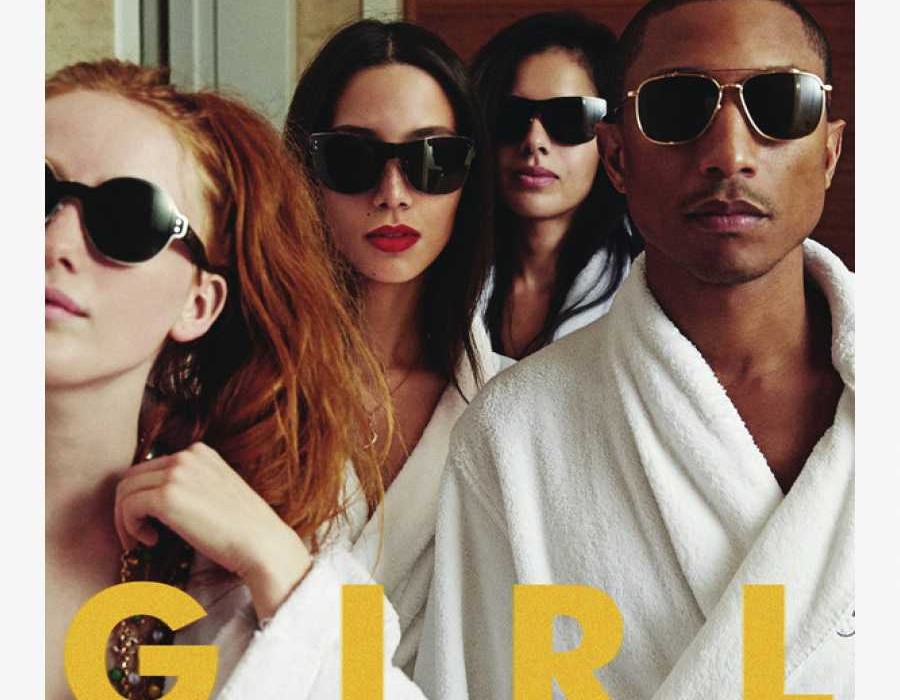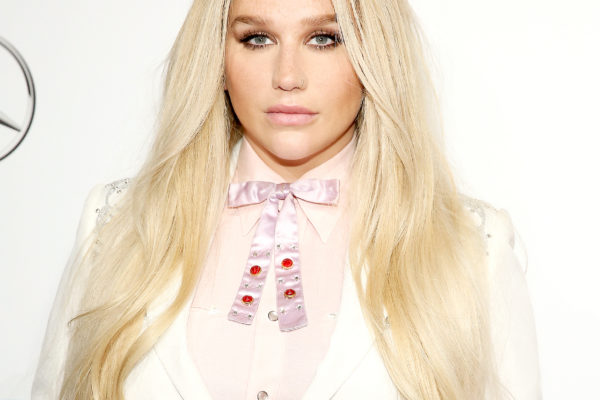The Neptunes were in the middle of an untouchable seven-year creative peak—beginning with Kelis’ 1999 debut Kaleidoscope and tapering off shortly after the Clipse’s 2006 comeback Hell Hath No Fury—when Pharrell dropped his debut solo single, “Frontin'”, which eventually landed on the Neptunes’ showcase LP The Neptunes Present…Clones. A lush, airy slice of R&B, “Frontin'” existed as a pleasurable curio until three years later, when Pharrell released his first full-length, In My Mind.
In My Mind was a low-key record that favored cascading piano cadences and psychedelic soul touches as a backdrop for Pharrell’s vacuous lyrics, and it sounds a little better in 2014 than its reputation suggests. But at the time, it cratered both commercially and critically, and Pharrell’s solo career faded in tandem with the Neptunes’ own slow retreat from the spotlight. The fact that he continued to make music as part of N.E.R.D., his genre-melding, notoriously inconsistent project with Neptunes partner Chad Hugo, suggested that the chilly reception accompanied by striking out on his own was a blow to his self-confidence. “I wrote those songs out of ego,” he told GQ in an interview earlier this year. “What was good about that? There was no purpose.”
If the materialistic bent of In My Mind was indicative of where Pharrell was in 2006, then G I R L, his second solo album, points to what he’s looking to achieve in 2014. The last eight years of the 40-going-on-23 years old auteur’s career have been light on creative substance—there were a few key contributions to albums from Frank Ocean, Usher, and Kendrick Lamar, as well as heavy involvement in the score for the 2010 animated film Despicable Me. But the success of Robin Thicke’s “Blurred Lines”, along with Pharrell’s work on Daft Punk’s Random Access Memories, propelled him into a new level of ubiquity. In a recent Pitchfork interview, Pharrell explained that the idea for the album came from Columbia after they first heard the still-inescapable “Get Lucky” and saw dollar signs. “They offered me a deal on the spot,” he said. “If I was left to my own devices, I would not have elected to do it.”
On Random Access Memories, Daft Punk created an expensive-sounding and grandiose monument to the music that shaped their personal histories; on G I R L, Pharrell has done something similar, but with a significantly narrower scope. A bright, smooth demonstration of musical largesse that features a diverse cast of supporting players including Justin Timberlake, Daft Punk, composer Hans Zimmer, Kelly Osborne, and teen breakout-turned-internet R&B curiosity JoJo, G I R L calls back to sounds that have shaped its creator’s musical vision. There’s the nervous sexuality of peak-era Michael Jackson, bright-eyed 1970s soul, funk’s squishy right-angle riffs. But largely, G I R L finds Pharrell taking inspiration from Pharrell. His past successes, both solo and as part of the Neptunes, echo throughout the album: the sweaty slink of Timberlake’s “Rock Your Body”, N.E.R.D.’s yacht-rock fixations on 2002’s so-nice-they-recorded-it-twice In Search Of…, the gum-snapping percussion on Snoop Dogg’s “Drop It Like It’s Hot”, the lad’s-mag R&B of “Blurred Lines”, and the undying jangle of “Get Lucky”.
The appeal of Pharrell’s production has long been a push-and-pull between elegance and agitation. He’s capable of sounds that can blow your eardrums and gently caress them into submission. G I R L also tempers its classic-pop approach with strident sonics, as sharp edges poke through the record’s overall smoothness—the airless riffs of “Hunter”, “Come Get It Bae”‘s cascading claps, the ascendant horn figure that punctures “Brand New”‘s chorus. These are small hints that Pharrell has a knack for pop music that, at its core, sounds a little weird. But G I R L hedges its bets; its all-ages, aisle-reaching attitude is ready for mass consumption, and over the next year and maybe longer, you’ll probably be hearing these easy-to-please tunes anywhere you can find a room without a roof.
“Happy”, originally conceived for the soundtrack to last year’s Despicable Me 2, has already reached the point of mass saturation and currently sits atop the Billboard Hot 100. Accompanied by a celebrity-packed video that’s impossible to watch without a grin on your face (as well as a 24-hour version that’s impossible to watch without a nap and a few square meals), the walking-on-air retro-soul of “Happy” is, arguably, one of the most beatific and lovable pop singles in recent memory, a bundle of New Age koans dipped in honey and left out to dry on a breezy spring day. If Cee-Lo’s “Fuck You” was a declarative T-shirt of a single, “Happy” is what you’d get if you turned that T-shirt inside-out, its effortless just-keep-livin’ attitude reflected in its presentation.
In addition to being G I R L’s highlight, “Happy” also stands apart from the thinly-drawn concept spelled out in the album’s title. “Women and girls, for the most part, “have just been so loyal to me and supported me,” he told GQ when speaking to the album’s thematic concerns, unintentionally reflecting G I R L’s shallow non-attempt at paying tribute to the opposite sex. Save for the hang-in-there-baby Alicia Keys duet “Know Who You Are”, nearly every woman on G I R L is the object of sexual pursuit, with Pharrell reprising the horny-schoolboy routine he, Thicke, and T.I. embodied in the “Blurred Lines” video.
In a recent London listening session, Pharrell hinted that G I R L’s female-centric focus was an attempt to rectify his association with the “questionable lyrics” that provoked accusations of sexism in “Blurred Lines”. It misses the mark badly. On “Hunter”, over a jarringly limp funk motif, Pharrell ditches his Dudley Do-Right hat for something more sinister, comparing the objects of his affection to animal carcasses stuffed for sport and shoehorning in an awkward (and ill-timed) “Duck Dynasty” reference before laying it out in no unspecific terms: “I’m a hunter.”
The tone-deaf “Hunter” also happens to be G I R L’s boldest moment. Other bits stand out—the come-hither hedonism of the Miley Cyrus-featuring “Come Get It Bae” and the bushy-tailed ebullience that Timberlake brings to “Brand New”, especially—but Pharrell leans a bit too hard on his Grammy-winning formula of tasteful, everything-in-its-right-place retro-pop. “Gust of Wind”, featuring Daft Punk, has all the relentless stair-climbing of Random Access Memories’ “Lose Yourself to Dance” with none of that song’s patient build; it jogs in place for five minutes that feel much longer. No one will deny Pharrell’s place in shaping how pop music’s sounded in the past 15 years, and the lack of innovation found on G I R L is also inarguable.
So while the immaculately blended pop smoothie that is G I R L goes down easy, its complacency is disappointing. Which makes “Lost Queen”, the eight-minute stretcher placed on the record’s back half, so surprising. Over hand drums and sampled chants, Pharrell unspools the type of corny pick-up lines and awkward pop-culture references (“Like Geico/ The time I’ll save you/ Can get those motors runnin'”) that G I R L is lousy with; then, the structure dissolves midway through, washed away by the sound of crashing waves, orchestral stabs, and refreshing sighs, reminiscent of Timberlake’s The 20/20 Experience ballad “Spaceship Coupe”. “You gotta go inward/ To experience the outer space that was built for you,” Pharrell sings in a watery cadence, offering advice that, at G I R L’s endpoint, you wish he took closer to heart.




